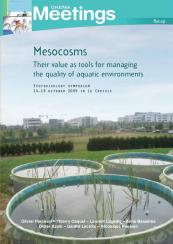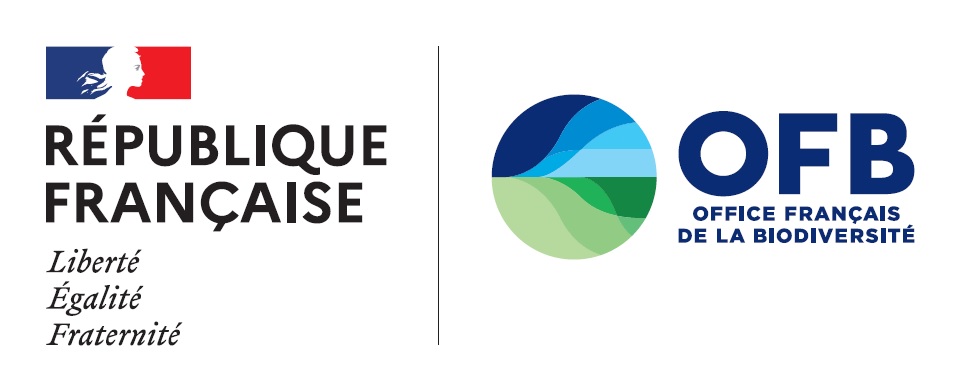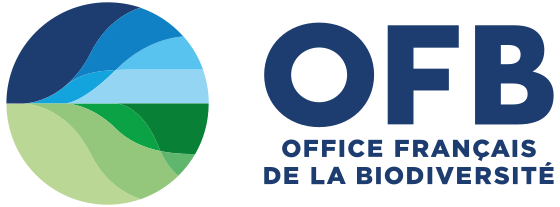Meetings recap
This series is intended for technicians and interested persons. It presents the main elements of technical meetings organised by OFB and its partners.
A hardcopy of each document may be requested as long as stocks last. Please justify your request when writing to veronique.barre@ afbiodiversite.fr.
Overseas coral reefs and seagrasses - Developing WFD bioassessment tools |
In terms of the specific water framework directive (WFD) needs, can coral reefs and seagrasses serve as indicators suited to assessing the ecological status of water bodies? The development of such tools represents a scientific challenge given the paucity of available knowledge on the ecology and functioning of these tropical ecosystems, and the relative lack of experience in their assessment.
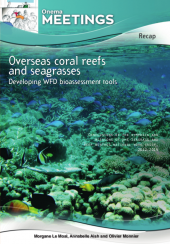
Chemical contamination of aquatic environments. Tools and methods for assessment and action |
Confronted with the vast array of polluting substances and the complexity of their effects on both ecosystems and lifeforms, water managers and stakeholders have expressed growing needs for operational knowledge, tools and methods. This document propose a progress report on the available tools and methods, on current projects and on the outlook for current research.
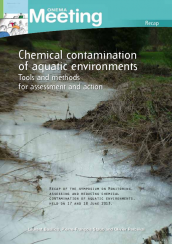
Water science meets policy: How to streamline knowledge to address WFD challenges? |
The 3rd workshop " Water science meets policy " focused on demonstrating the added value of the science-policy interface (SPI) at all geographical levels and proposing key aspects to implement a sustainable SPI activity in the CIS structure. This document presents the main recommendations expressed by the participants regarding tools, methods and operational modalities for an efficient implementation and successful SPI in the WFD CIS context.
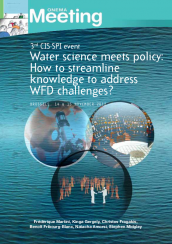
Exotic crayfish invasions. Ecological impacts and management approaches |
This document presents the results of the first National meetings on invasive exotic crayfish providing a description of present knowledge on invasive and native crayfish species in France, a better understanding of processes operating, the place of invasive crayfish in aquatic ecosystems and their effects on biodiversity, and lastly a presentation of management approaches investigated in the country.
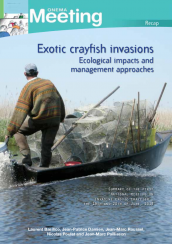
Diagnosing and restoring aquatic biodiversity |
The 2 days of discussions between scientists and water managers were an occasion to present some 30 partnership-research projects on aquatic biodiversity. Following a status report on biodiversity in aquatic environments, the speakers presented a range of innovative tools for monitoring and restoring biodiversity in a context of global climate change. Recap.
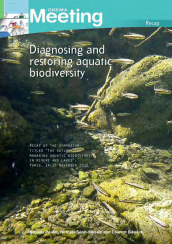
The Eels & Installations R&D programme targeted a number of operational goals that resulted in the development and testing of technical solutions designed for rapid implementation in the field. All programme results were presented at the feedback symposium which brought together researchers, water managers, associations and hydroelectric companies. This document presents the results of the programme to restore eel stocks.
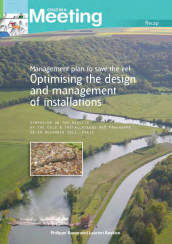
Implementation of the Water Framework Directive. When ecosystem services come into play |
This document presents the results of the seminar Implementation of the Water framework directive. When ecosystem services come into play, i.e. the concept of ecosystem services, the application methods for integrated water management in Europe, recommendations for decision-makers and the fields where further research is required.
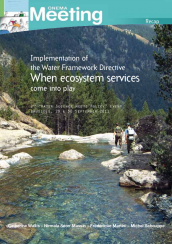
Protecting water abstractions from the nonpoint-source pollution released in large part by farming activities is a crucial challenge for our societies. The Large-scale farming offering high economic and environmental performance scientific group (GIS GC-HP2E) brought together a number of participants to discuss these complex issues. This document recapitulates the projects presented, the viewpoints and the scientific contributions made during the meeting.
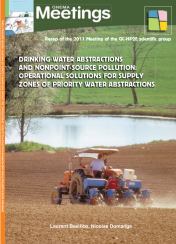
Positioned at the interface between science and policy, the workshop provided an opportunity for economists, practitioners, policy makers and researchers to dialogue about the design and implementation of (new) economic instruments in the field of water, as a means to identify: the main policy demands in terms of economic knowledge and expertise, key “success factors” for the effective implementation of economic instruments, pre-conditions for economic instruments to deliver behavioural changes and efficiency gains, and support financing actions for achieving sustainable water management and the ecological objectives of the WFD.
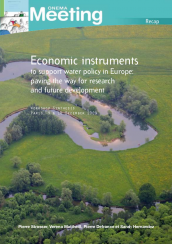
Mesocosms. Their value as tools for managing the quality of aquatic environments |
This document reviews the advantages of mesocosms for ecology and ecotoxicology studies, presents the needs and expectations of water managers concerning toxic micropollutants, and finally proposes a number of ideas on the use of mesocosms in meeting the challenges involved in ensuring the quality of aquatic environments.
